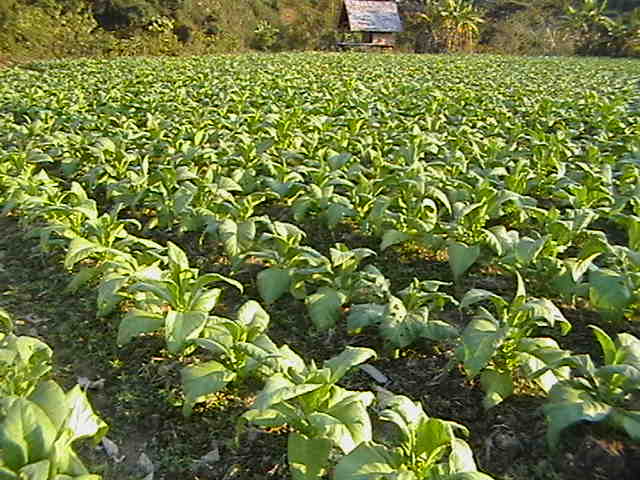There are growing concerns about the resurgence of illicit trade in tobacco in Nigeria and globally. Tobacco Reporter, an online medium that provides information and insight on the tobacco industry, estimates that 600 billion cigarettes per year are accounted for by illicit trade.
Through multilateral collaboration and consistent clamp down on the trade by regulatory bodies, significant successes were recorded in reducing the volume of illicit cigarettes to less than 20 percent in Nigeria in the last few decades. Before then, the volume of illicit cigarettes smuggled into the Nigerian market accounted for 80 percent of the product consumed in the country. However, the success recorded in stemming illicit trade is being eroded as flavoured cigarettes flood the Nigerian market.
The sale and proliferation of flavoured cigarettes is, no doubt, an alarming dimension to the problem of illicit trade. They are outlawed in Nigeria and declared as contraband by the Standards Organisation of Nigeria (SON). While flavoured cigarettes smell nice and may seem a safer alternative to conventional cigarette, its health consequences for the youth and children can be very grave. They are alluring to children and young adults, because the flavouring masks the pungent taste of the tobacco, especially when they come in flavours such as strawberry, vanilla, orange, cherry, chocolate etc. that are particularly attractive to the target demographic.
It is for the aforementioned reasons that flavoured cigarettes are clearly outlawed in the recently signed Tobacco Control Act (TCA) as outlined in Sections E and G of Part 1 of the TCA. Some of the major objectives of the Act include “discouraging smoking initiation” and ensuring that “tobacco or tobacco products are not designed in any way that make them more addictive, especially to persons who are below 18 years of age.”
In spite of an alert issued by SON to the general public on the proliferation of variants of Oris Slim brand of cigarettes through advertorials widely published in some national newspapers, importers of the brand have continued to trade in the product. The importers, it was reported, only applied for license for the menthol flavour variant, but have been using the defective license to import and sell not only the menthol flavoured variant of cigarettes, but also other flavours such as apple, chocolate, orange and strawberry, which have not been tested by SON to confirm the constituents of the cigarettes are in conformity with the standard requirements. Neither have the products been registered as no license has been issued for them. What is more worrisome is the extent to which the importers/manufacturers are willing to go in misleading SON and the general public and circumventing the law in a bid to hide the fact that their products are flavoured. They have altered their packaging by changing the wording Strawberry” to “STR.” Illicit cigarettes are said to be one of the world’s most illegally trafficked goods. The illicit cigarettes have either been smuggled, counterfeited or have evaded duties in another manner after being legitimately manufactured in another country. They are priced much cheaper than legal cigarettes, and are not subjected to stringent regulation in the form of health warnings, product checks, or age verification before purchase. Besides, there is usually a natural recourse to cheaper sources from illicit quarters by low income earners. Illicit trade also imposes heavy regulatory burdens. These products have devastating impact on smokers, the legitimate tobacco industry as well as government. It is widely known that compliance by illicit traders with prevailing industrial hygiene and safety standards is usually low.
It also important to note that illicit trade in tobacco fuels other criminal activities such as global terrorism, money laundering and human trafficking. A 2012 Global Agenda Council of the World Economic Forum further affirmed that “illicit trade is a big source of revenue for transnational criminal networks.”
Sadly, Nigeria is not winning the battle against illicit trade in tobacco products as its porous borders, poor intelligence network and corruption of due process have conspired to strengthen the sale of illicit tobacco products.
The problem of illicit trade is multi-faceted and requires concerted efforts by governments, civil society groups and the private sector to tackle. Evidently, such multi-stakeholders’ approach have often proven resourceful. There is need for greater collaborations between agencies and stakeholders in the law enforcement business, which include the Nigerian Customs Service, the Nigeria Police, the Standards Organisation of Nigeria (SON), and the Consumer Protection Council (CPC), in ensuring that smugglers and dealers in illicittobacco products do not compromise health standards set by government.
Recent raids carried out through a special task force set up by the SON and CPC on dealers in illicit tobacco products in parts of Lagos as well as distribution of flyers with visuals for semi-literate and literate consumers on flavoured cigarettes are indeed commendable. But more importantly, prosecution of offenders can serve as a strong deterrent to others.
Regardless of the widespread disapproval of tobacco consumption, the tobacco industry remains a huge revenue earner for the nation and a critical aspect of the non-oil sector of the economy, which the Federal Government intends to use to revive and re-grow the economy. Therefore, government must do everything within its powers to stop the influx of illicit tobacco products into the country. Agencies such as the CPC and SON should as a matter of urgency comb major markets to stamp out illicit tobacco products. But without arrest and prosecution of major importers and traders in illicit tobacco products, such measures as recently carried out by the SON/CPC will amount to nothing.




 Premier League
Premier League